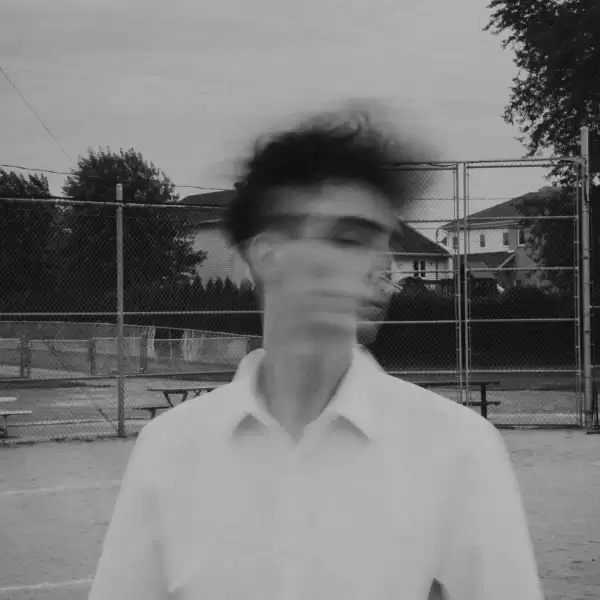Dual Diagnosis Care, Right from Home
When addiction and mental health struggles overlap, it can feel like a never-ending cycle. Fortunately, there is help.
Stress, anxiety, or low mood might push you toward substances (or the other way around) making it tough to know where to start. Concurrent disorders are common: roughly 40–60% of Canadians with a substance use disorder also meet criteria for a mental health disorder at some point.
HBR’s fully online programs support you or your loved one on both fronts, mental health and addiction.

What is Co-Occuring Addiction?
Co-occurring addiction (aka dual diagnosis or concurrent disorders) means facing both a substance use issue and a mental health condition at the same time. This is an important distinction: if conditions are treated separately, co‑occurrence is associated with higher risks of overdose, suicide, hospitalisation, homelessness, and poorer treatment outcomes.
Fortunately, integrated, concurrent‑capable care such as HBR leads to better retention and outcomes while also being more accessible.

Introducing Home Based Recovery
Online Recovery Programs for Co-occurring Addiction
-
HBR for Individuals
Home-Based Recovery connects you with real specialists for individual counselling online, tailored for addiction and mental health, no waitlists, no travel. Start making change at your own pace, wherever you are. -
HBR for Family Members
Support navigating the challenges of a loved one’s substance use or mental health concerns while learning to look after your own wellbeing. -
Virtual Counselling
Confidential counselling for a wide range of mental health and substance use concerns. Explore relationship patterns for couples and individuals, all from the comfort and privacy of your own home.
Reviews from HBR Alumni
We have had a family member go through the program, they are a wonderful group of caring professionals who understand and connect quickly and successfully to their clients, Michael made him feel less alone and believed he could do it. We also used their family therapist to help us navigate our own journey, it helps everyone to normalize the experience and alleviate the isolation and feelings of helplessness a family feels. In addition, the resources and further supports they recommended were invaluable, they are well connected and I would highly recommend the service.
It's hard to put into words just how much this program helped me. If you're looking to make a change in your life, but are unsure where to begin or how to go about it, the HBR program is a great place to start. It offers tons of tools and resources that are easy to apply to everyday life, and the support you receive (not only during the bulk of the program, but continuing on after) has been essential in my own personal recovery. I was able to get the help I needed without uprooting my entire life. I am so, so grateful to Michael Walsh, as well as everyone else involved in the program.
Facing Multiple Challenges?
Integrated Care for Complex Needs
What to Expect
How HBR Works
Confidential Dual Assessment
Get Matched With Your Coach
Begin Your Online Program
Integrated Skills & Support
Family Support (Optional)

Are Virtual Treatment Programs Effective for Co-Occurring Challenges?
Online treatment can be highly effective for people dealing with both addiction and mental health issues – especially when programs are integrated and flexible, such as Home Based Recovery.
Recent Canadian studies show that virtual care leads to real progress. Participants report fewer days affected by substance use, improved mood and anxiety, and better overall functioning.
These studies reflect our own findings with clients: yes, virtual treatment programs do work.
Telehealth breaks down barriers like travel, stigma, waitlists, and limited local services. Home Based Recovery makes help available when (and where) you need it most. Having ongoing access to the same coach means you are never navigating this alone. The key is an approach that treats all of you, not just one piece of the puzzle.
Learn More
Resources & FAQs

Understanding Dual Diagnosis
Co-occurring addiction — often called “dual diagnosis” — means dealing with both a substance use issue (such as alcohol, cannabis, prescription medications, or gambling) and a mental health condition (such as depression, anxiety, PTSD, or bipolar disorder) at the same time.
Dual diagnosis is more common than many people realize: about half of Canadians living with substance use problems are also experiencing mental health symptoms.
These challenges are often interconnected. You might have used alcohol to cope with panic or low mood, or noticed that substance use makes your emotions harder to manage. Sometimes one issue comes first; sometimes they emerge together.
Either way, it can feel overwhelming, and standard treatment often focuses on only one part of the picture.

Why is Treating Both Addiction and Mental Health So Important?
When only one issue is treated – perhaps you stop drinking, or you being taking medication for anxiety – the other issue(s) can quickly get in the way of recovery. For example:
- Drinking less can make anxiety or low mood suddenly feel much louder.
- Untreated depression can wreck motivation and make it harder to stick with sobriety.
- Trauma or PTSD can drive cravings and relapses.
The best results happen when both sides are tackled together. Integrated support helps you break the cycle: you learn healthier ways to manage stress, emotions, and cravings – all while building a foundation for longer-term change.
You do not have to choose between working on your mental health or your substance use; HBR can help you do both.
Online Treatment for Co-occurring Issues FAQs
What does “co-occurring” or “dual diagnosis” mean?
It means facing both a substance use issue (like alcohol or drugs) and a mental health condition (like depression, anxiety, PTSD) at the same time.
Why do these issues often go together?
Sometimes people use substances to cope with mental health symptoms; other times, substance use can make those symptoms worse or trigger new ones. The two conditions often feed off each other.
Is a dual diagnosis common?
Yes, very. About half of Canadians with substance use challenges also have a mental health diagnosis.
Why is integrated treatment important?
Treating only one part (like just the addiction) usually does not work long-term. Integrated care means addressing both at once, which leads to better outcomes.
What does HBR’s program offer for dual diagnosis?
Our coaches work with you on both sides: helping reduce substance use and build healthy ways to manage stress, mood, and anxiety – using evidence-based techniques.
How long does recovery take with co-occurring issues?
It is different for everyone, but recovery can take longer than treating just one issue. Relapses are common but not a sign of failure; ongoing support really helps.
Can families help their loved one with dual diagnosis?
Absolutely – family understanding and support can make all the difference. Our Safe Ground program teaches families how to encourage positive change without judgment or pressure.




